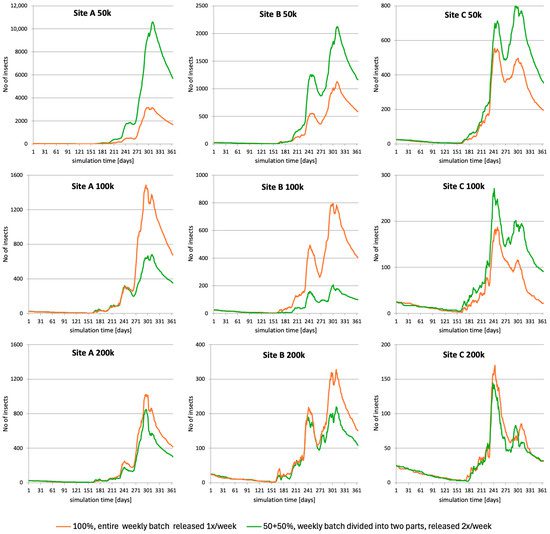New Study Enhances Local Planning for Sterile Insect Technique
22 Apr 2025
A newly published open-access study presents a major step forward in the local implementation of the Sterile Insect Technique (SIT) to control medfly populations—thanks to key developments supported by the REACT Horizon Europe project.
The Mediterranean fruit fly (Ceratitis capitata) poses a serious threat to fruit production across Europe and beyond. While SIT—an environmentally friendly method that suppresses pest populations by releasing sterilized males—has been proven effective on large scales, implementing it locally has been a challenge. Responding to this challenge have Slawomir A. Lux and Marco Colacci from inSilico-IPM and the University of Molise have developed an enhanced version of the PESTonFARM model. This decision-support system (DSS) enables fine-scale simulation and planning of SIT operations in heterogeneous agricultural landscapes—right down to the level of individual medflies.
Using data from real-world conditions in the Naoussa Valley, Greece, the model simulates how medflies and released sterile males behave and disperse in complex local terrain, to assess how variables like fruit type, landscape structure, release frequency, and male quality affect SIT success. Furthermore the article provides insight into when and where to release sterile males for maximum impact: a particularly important information for emergency responses, isolated outbreak management, and preventive actions near high-risk areas such as ports or fruit markets.
The adapted PESTonFARM model bridges a crucial gap in applying SIT on a local scale. It empowers pest managers and researchers with the ability to design data-informed, site-specific strategies—an essential advancement for integrated pest management (IPM) in diverse European landscapes.
Key Findings
- Even very small variations in site topography and fruit distribution significantly influenced SIT outcomes.
- Weekly aerial releases of sterile males were more effective than ground-based releases.
- High suppression levels were achieved—even without complete eradication—highlighting SIT’s potential for seasonal medfly control.
- Detection of small founder populations is notoriously difficult—reinforcing the value of model-based planning.
Find the full article on the REACT Zenodo Community.
Bibliography
Lux, S. A., & Colacci, M. (2025). Adaptation of the PESTonFARM Model to Support Decision-Making and Planning of Local Implementation of the Sterile Insect Technique in the Control of Ceratitis capitata Flies (Diptera: Tephritidae). Applied Sciences, 15(12), 6694. https://doi.org/10.3390/app15126694
Lorem ipsum dolor sit amet, consectetur adipiscing elit. Ut elit tellus, luctus nec ullamcorper mattis, pulvinar dapibus leo.

